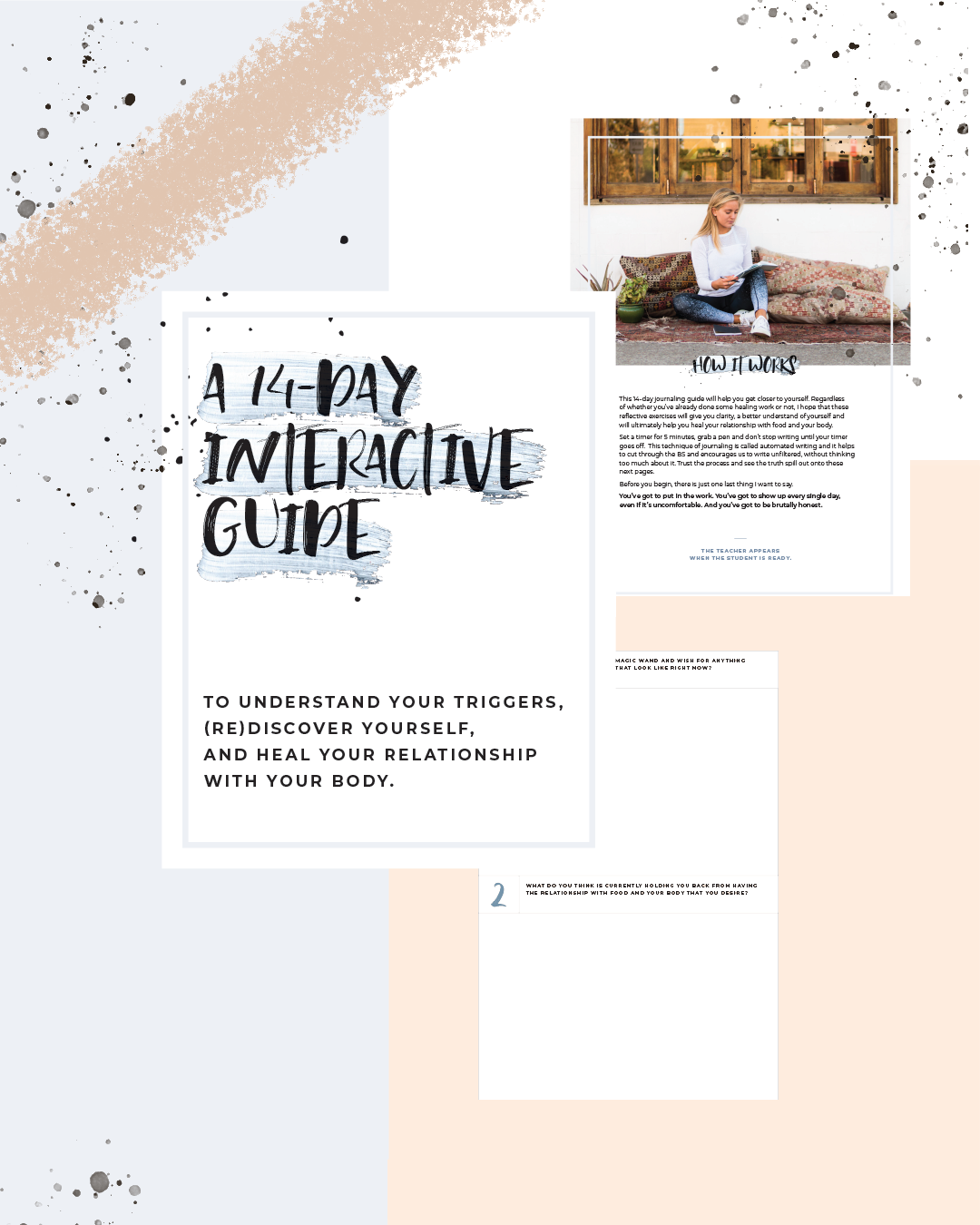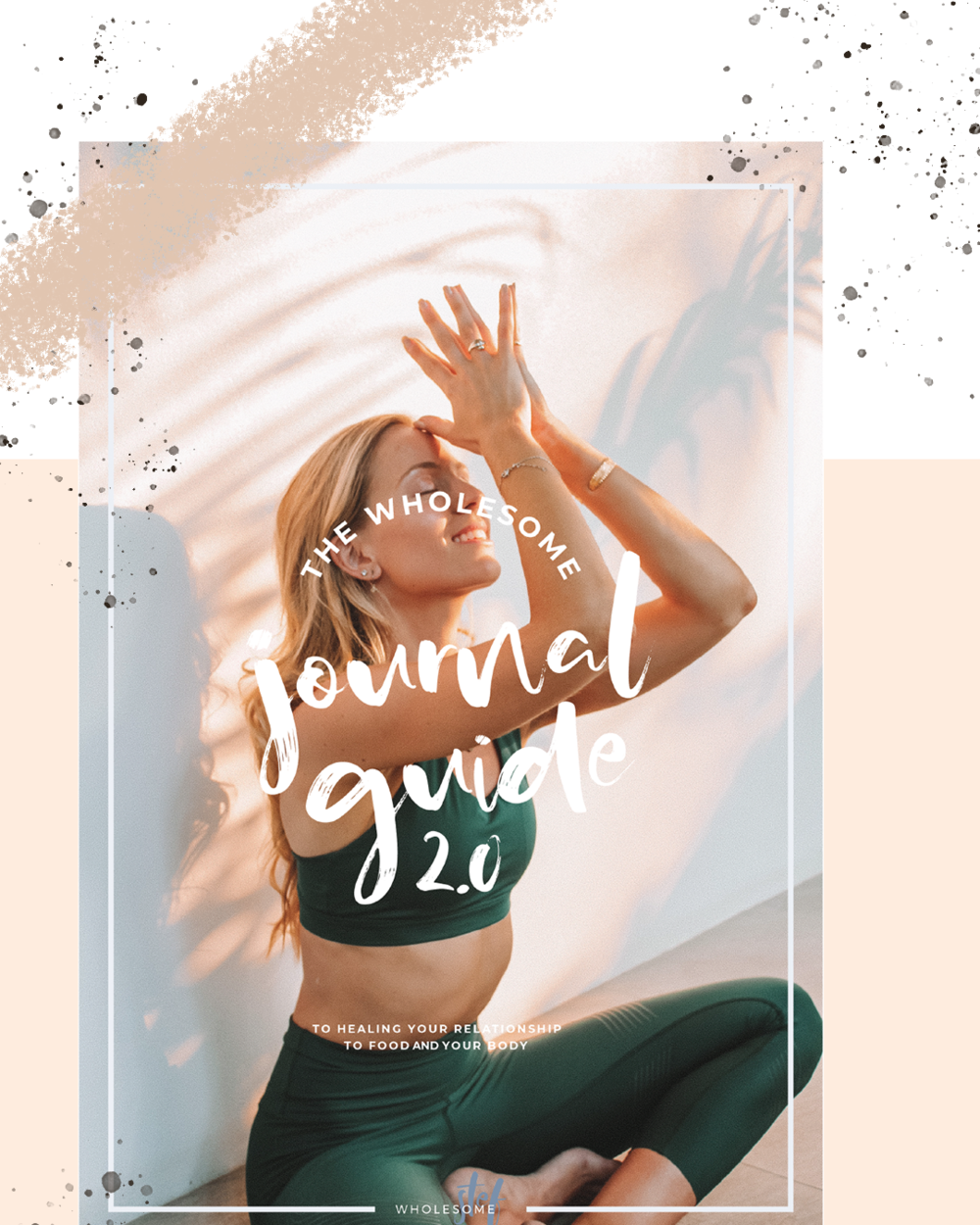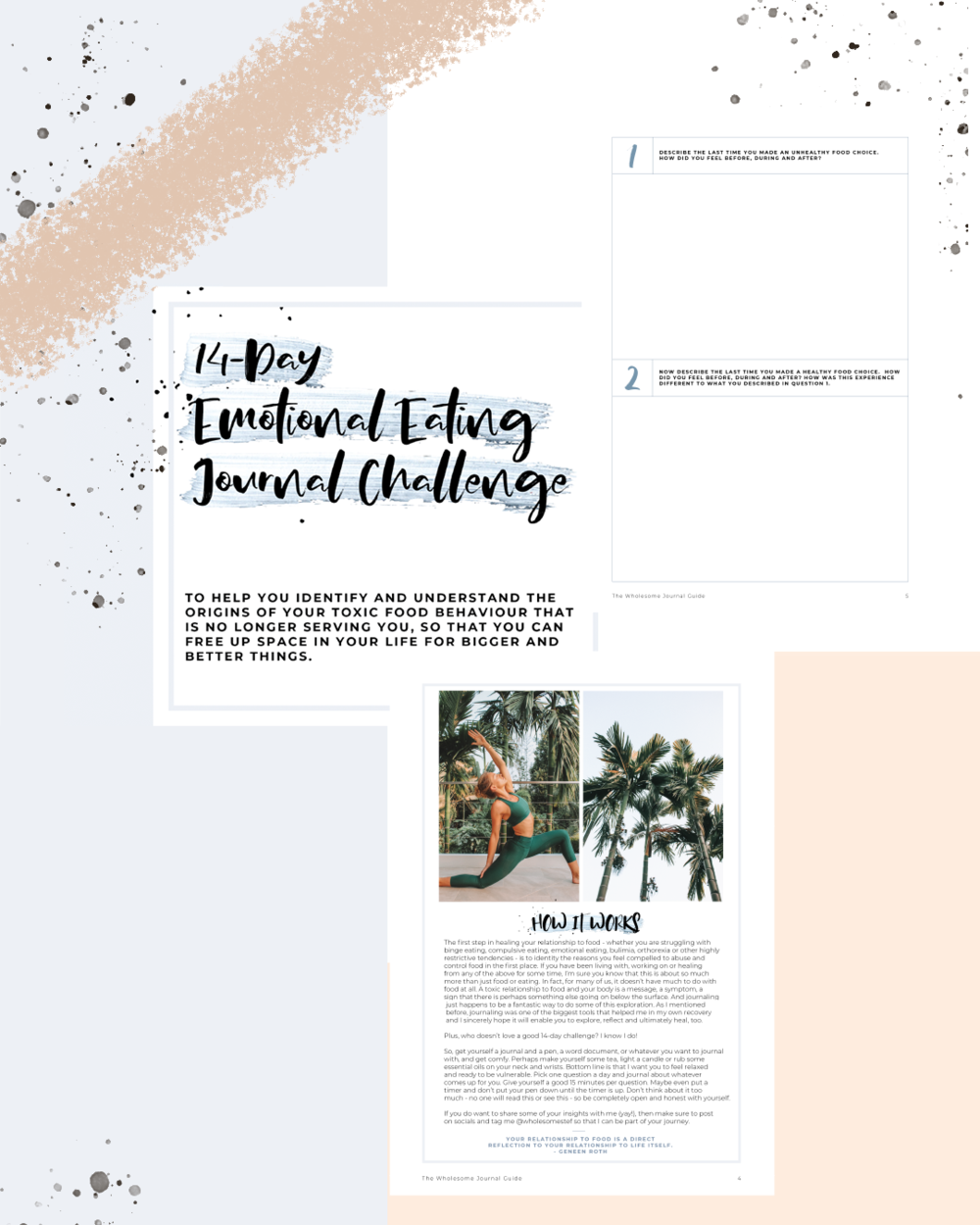Are You An Emotional Eater? Here Are 7 Tell Signs
Ever had a fight with your boyfriend, or a frustrating day at work, then end up cozying up with a nice cold pint of Ben & Jerry’s at the end of the day? Do you reach out for food to feel better even when you weren’t even hungry? Is your first impulse always to open the refrigerator whenever you’re stressed, upset, angry, lonely, exhausted, or bored?
You may be an emotional eater. Meaning that you’re someone who uses food as a way to deal with feelings (typically negative ones) instead of to satisfy hunger. Instead of seeing food as what it is, i.e. something you consume for survival (like air and water), you misconstrue it into something else.
As I’ve touched on in previous posts, emotional eating is not a sin! When we become stressed, anxious, or worried, it’s only human to gravitate towards food to cope with our emotions. The problem arises when food is the only coping mechanism to dealing with emotions. One question I ask my clients and which I encourage you to answer truthfully is:
“What percentage of your self care tool kit currently consists of food"?”
When your emotions dictate eating habits–rather than your stomach, it can quickly lead to overeating and perhaps most damaging of all, an unhealthy mental relationship with food in the long run. Let’s look at some signs that indicate you might be an emotional eater.
#1 – You eat when you’re stressed, sad, angry, lonely etc
You search for food the moment you feel anything, be it sadness, stress, annoyance, disappointment, anger, loneliness, anxiety, or boredom. Sounds like you? If the first thing you want to do is raid your fridge after you’ve gone through an emotional event, no matter if it’s positive or negative, chances are, you’re an emotional eater. This pattern of eating has probably become so ingrained in you that you don’t even realize it. And in such cases, you’d typically find yourself 10 spoonful’s into your peanut butter, only to realise that you’re not even hungry at all!
There’s a time and place for using foods to cope with emotions. But the long-term risk is that the original reasons that cause you distress are never uncovered, and as a result are never dealt with. Just like hiding your head in the sand doesn’t mean the world doesn’t keep going, ignoring your emotions by eating doesn’t mean the problem has disappeared. It is still there; you just don’t know it.
#2 – you experience sudden pangs of hunger
Are you fine one second, then absolutely ravenous the next? Here’s the truth. Physical hunger doesn’t always come on suddenly. Instead, you’ll more likely notice low energy levels and your stomach may make all kinds of weird, gurgling sounds. This is in stark contrast to emotional hunger, which comes on suddenly when you may not even be thinking of food. One moment you’re prepping the slides for tomorrow’s meeting and the next minute, bam! You can’t wait to dig into that thick, chocolatey cake in the fridge. So, the next time you reach out for food, take note of the time it took for you to get hungry. If it was within seconds, it’s likely in response to an emotion rather than physical hunger.
The next time you are hungry but can’t figure out if it’s physical hunger or emotional hunger, I invite you to first have a healthy snack like an apple. Notice what happens: does it begin to satisfy you or does it not “do anything for you”? If it’s the ladder, it’s likely because you’re not actually hungry.
#3 – You crave for something really specific
If you were truly hungry, any food would fill you up and, thus, satisfy you. But if you’re an emotional eater, you’ll tend to crave certain foods that you’ve associated with comfort and happiness. Be it pizza, cupcakes, doughnuts, or any other foods, you'll feel like you absolutely need to eat that specific food. Otherwise, you'll feel unhappy and unsatisfied for the rest of the day.
#4 – You eat faster than usual
Emotional eating often happens in conjunction with distracting yourself to take the attention off the eating process. You numb out by watching TV or scrolling through social media, almost as if to prevent yourself from realising what you’re doing. As a result, you eat a lot faster than you typically would.
#5 – You use food as a reward
Stuck to your workout plan today? Eat some cake. Finished writing that pitch for a client? Time for some doughnuts. No matter what the scenario, if you find that you're always rewarding yourself with food, you're likely an emotional eater. Of course, this isn't any fault of yours. Most of us learn early on that food is a reward–where our parents only allowed us to have dessert if we finished our broccoli, or have fries if we behaved well in school. But this mentality, when brought into adulthood, is the perfect recipe for emotional eating. Here’s a question to ask yourself the next time you eat: ‘Am I using this to reward myself?’ If you frequently answer yes to this question, you’re likely an emotional eater.
#6 – You beat yourself up for eating
When you eat to satisfy physical hunger (i.e. when your body really needs to be fueled), you’re unlikely to feel guilty or ashamed because you’re simply giving your body what it needs. You’re able to stop eating the moment you’re satisfied and before you’re uncomfortably full. But when you emotionally eat, your desire to eat is not driven by your body’s cues at all. It can sometimes feel like it’s taken on a life of its own–uncontrollable. If you are struggling with binge eating, this may even feel like an out-of-body sensation that you have zero control over. When you finally recognise that you’ve overeaten at the end of your emotional eating episode, feelings of guilt, shame, regret and even disgust may pop up. Feeling these emotions after you’ve eating is a red flag that you’re emotionally eating.
#7 – You use emotionally-charged words to describe eating/food
If words like “cheat meal”, “sinful”, “tempting”, “craving” and “fallen off the bandwagon” are a constant in your vocabulary use, it points to you having an emotionally laden relationship to food. You have categorised foods into good and bad, and there doesn't seem to be an in-between.
Did you find most, if not all, signs of emotional eating familiar? Before you hit the panic button, just know that it is possible to retrain your brain not to automatically reach for food the moment you feel any kind of emotion–and to eat when your body tells you to. You’ll need to put in some work, of course, but you’ll emerge from the experience with a healthier relationship with food. Want to break free of emotional eating? Book a FREE 20-minute discovery call with me here or download my two free eBooks to help you work through your unwanted eating concerns.
I have created two free 14-day Emotional Eating Journal Guides, designed to help you dive deeper into the origins of your toxic food behaviour that is no longer serving you, so that you can free up space in your life for bigger and better things. Essentially, this is a sneak peak into some of the questions I work through with my clients in our one-on-one coaching sessions. I hope that you have many lightbulb moments along the way and are able to use this increased awareness to make positive changes in your life.







